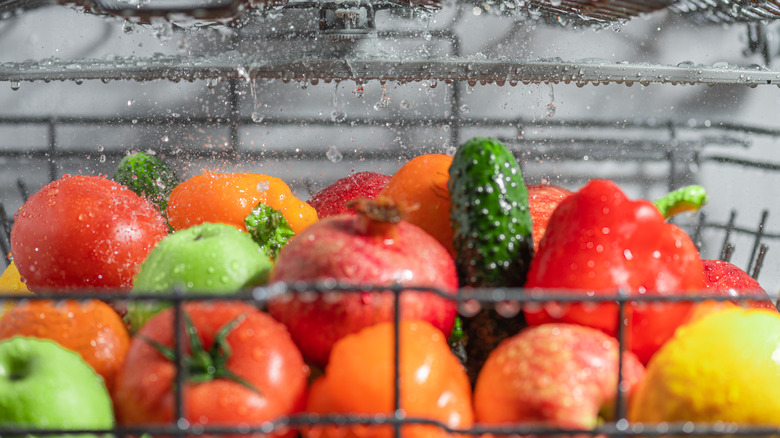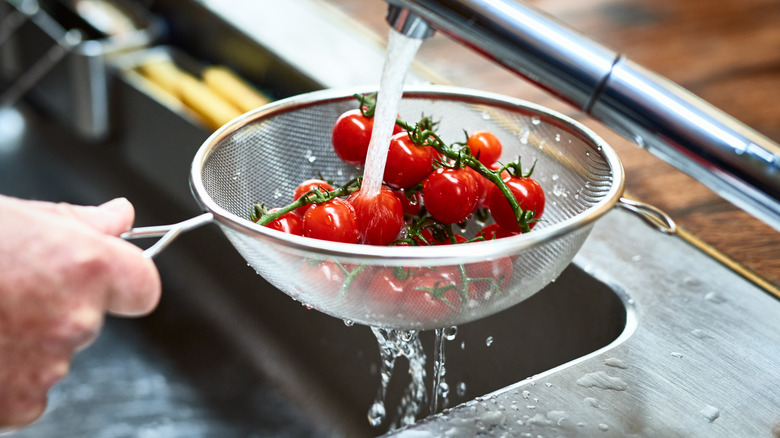Is Washing Vegetables In The Dishwasher Actually Dangerous?
It's common knowledge that you have to wash fresh vegetables before you eat them. This is because they can pick up traces of chemicals, fungi, and microbes, including bacteria like salmonella, listeria, and E. coli which cause some of the most common types of food poisoning in the U.S. While it's important to rinse them off before preparing and consuming, the dishwasher isn't the most effective way to do so. In fact, it could make the problem worse.
Even if you run a water-only cycle, traces of dishwasher detergent could still be in your machine and end up on your food. Many dishwasher detergents are highly alkaline, with the potential to irritate or burn your digestive tract. What's more, if there are harmful microbes on the produce, you run the risk of spreading them throughout your dishwasher. In that dark, humid environment, they can continue to grow, turning your dishwasher into a petri dish that contaminates everything you put into it.
Finally, it's not just a matter of health. If your heat setting is on, washing veggies in your dishwasher could cook them, leaving you with soggy, unappealing produce.
The best way to safely wash produce
If you want to reduce your risk of developing food-borne illness, follow the FDA's food safety guidelines. It starts at the store, where you should bag produce separately from animal-based products like poultry and meat. Once you get home, refrigerate perishable items like mushrooms, herbs, and leafy greens right away to keep them fresh.
When you're ready to cook, rinse your veggies under running water, moving them around to reach every piece and using a scrub brush on hardier foods. Plain water works well to wash away most contaminants, so you don't need to use soap. While rinsing produce by hand won't always remove every single contaminant, cooking foods at the proper temperatures will kill microbes and make them safe to eat.
Now, if you're wondering if you still have to wash produce before peeling it, the answer is yes. That way, you won't transfer contaminants to your knives and cutting boards. It's also important to not use the same cutting board for everything, especially for plants and animal-based ingredients which can increase the chance of contamination. However, if you don't have two separate ones to use, wash your board and knives thoroughly between prepping these types of ingredients.
Ultimately, rinsing vegetables in the sink isn't just a safer, more effective way to clean them, it's also less work than loading them into your dishwasher. Plus, no one wants to open the dishwasher and play the guessing game of clean, dirty, or vegetables.

